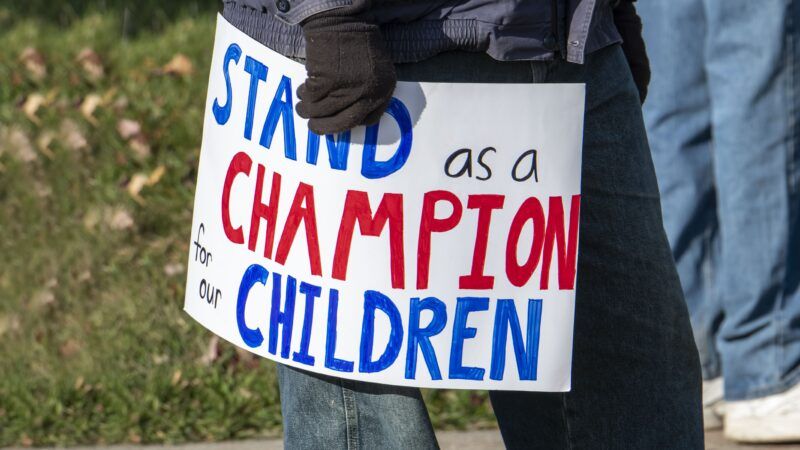School Choice Gets Lip Service at Republican Debate
GOP presidential hopefuls should be more clear about the school choice policies they support.

During Wednesday's Republican debate, there was one thing that just about every candidate could agree on: School choice is a great policy, and more school choice will help pull American schoolchildren out of their post-COVID test score slump.
"We need to make sure that we have school choice so there's competition," said former South Carolina Gov. Nikki Haley. "We need to move all the programs from the federal government down to the states, and let states decide what education looks like."
When asked about his record on education in New Jersey, former Gov. Chris Christie bragged about creating "more charter schools and more Renaissance schools and more public school choice."
"We didn't just talk about universal school choice," boasted Florida Gov. Ron DeSantis. "We enacted universal school choice."
Except no one defined what school choice is.
While it's a good sign that school choice is getting so much airtime, it risks becoming just another political buzzword if Republicans don't explain what it actually means and which school choice policies they support.
School choice can be used to describe just about any policy that makes it easier for parents to send their children to schools other than their local zoned public schools. School choice can range from conservative proposals like open-enrollment policies, in which parents can enroll their children in other school districts if those districts have extra seats, to expansive measures in Florida's law, which lets all families who opt out of public schools get a cut of the funds that would have gone to local schools to use toward private school tuition.
Forty-three states have open enrollment, though some make it prohibitively difficult for parents to participate. Forty-five states allow charter schools (publicly funded and tuition-free schools that are privately run), and 15 states have private school vouchers, though most programs are means-tested.
Poor and middle-class families should have a chance to do what wealthy families have always done: choose where their children go to school. And when you force public schools to compete with other options, it pushes them to improve their offerings and better serve their students.
Since pandemic-era school closures, that sell has been even easier to make. Not only has homeschooling increased by 30 percent immediately following the pandemic (with private schools experiencing more modest gains), but high-profile efforts to enact generous voucher programs have been successful in Florida and Arizona.
As a result, national support for the concept of "school choice" is high. Recent polling by the American Federation for Children found that 71 percent of Americans support the concept of school choice, including 66 percent of Democrats.
While supporting school choice is clearly a winning strategy for Republicans—and Democrats—going beyond vague platitudes will help more Americans take their positive view of the concept out of the abstract and into statehouses.


Show Comments (23)